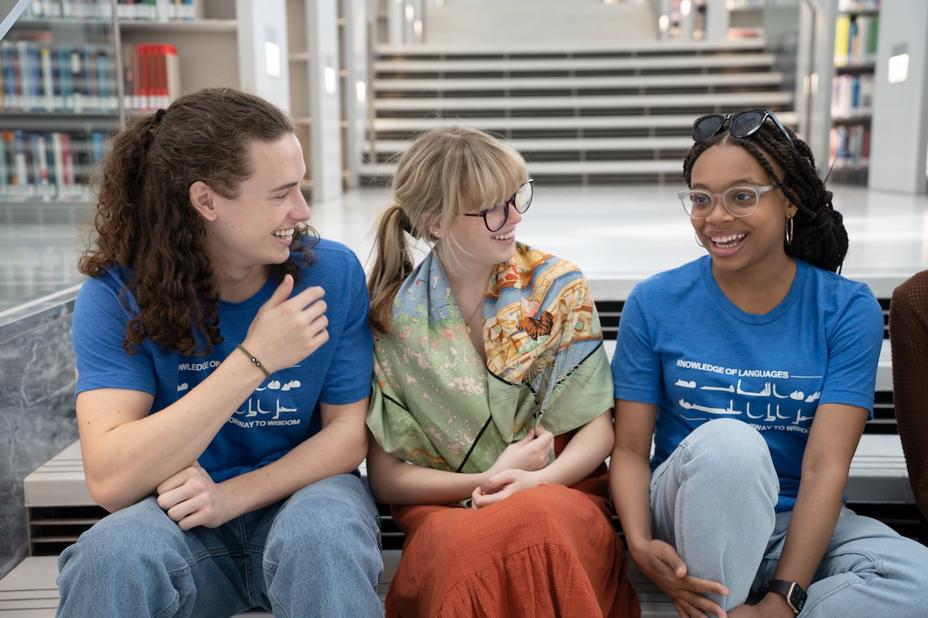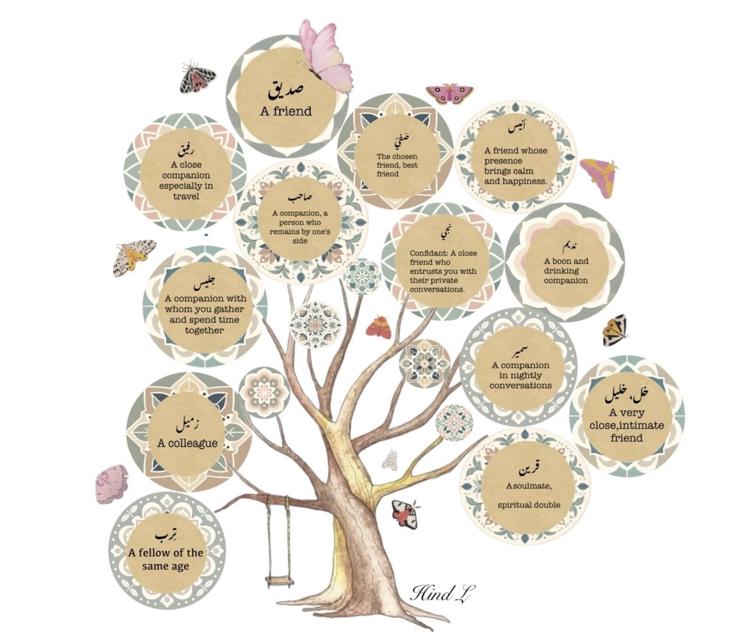
Something went Wrong
Try entering your email again or contact us at support@qfi.org
Try entering your email again or contact us at support@qfi.org
You’ll receive an email with a confirmation link soon.
Jul 30, 2025
By Hind Rashid Latif
In 2011, the United Nations General Assembly established the International Day of Friendship as an inspiring initiative to promote noble friendship among individuals. The declaration aims to strengthen peace efforts and build bridges between people and societies of diverse backgrounds, colors, and cultures.
As this special occasion approaches (30th July), I would like to highlight the word “friend” as one of the many terms in the Arabic language that boasts a rich array of synonyms. This linguistic depth reflects the expressive power of Arabic, demonstrating its capacity to capture subtle variations in meaning with exceptional accuracy.
One of the most fascinating and impressive qualities of the Arabic language is its extensive synonymy, where multiple words or expressions share the same fundamental meaning, yet each holds distinct nuances, contextual significance, and variations in usage. This linguistic richness enhances Arabic's depth, adaptability, and sophistication, making it a language celebrated for its precision and artistic expression.
Synonymy stands as one of the most profound expressions of semantic richness in the Arabic language, offering a depth and variety rarely found in other languages, even those with deep historical roots or widespread influence.
The word "friend" appears in Arabic literature in many forms, with more than 30 synonyms, each standing for distinct stages of companionship. These stages begin with Tirb (تِربْ) at the earliest level and culminate in Khalil (خل أو خليل) and Qareen (قرين) at the deepest. Between these two, various words for friendship exist, each serving a unique purpose while preserving the beautiful meaning of one of the most cherished words in all languages.
The Synonyms of "Friend" in Classical Arabic
Arabic has a rich vocabulary for friendship, with different words capturing various depths of connection. Here are some more terms:
Choose your companions wisely and build strong, true friendships. As the saying goes: “true friends are like stars; we may not always see them, but we know they are always there.” Friendship is still the most precious word, a universal concept and timeless idea across all languages and cultures. Moreover, it becomes more beautiful when expressed in a language as majestic as Arabic.
Disclaimer: The views and opinions expressed in this blog are those of the author and do not necessarily reflect the views of Qatar Foundation International (QFI). While QFI reviews guest contributions for clarity and to ensure the content is valuable for our audience, the accuracy and completeness of the information are the responsibility of the author.
Submit Your Own Blog!
We invite educators, researchers, and professionals in Arabic education to share their insights with our global community. Whether you teach, conduct research, or support Arabic language learning, your voice can spark innovation, drive change, and deepen understanding in the field of Arabic education.
Hind Latif is from Östersund in Sweden and originally from Iraq. She has lived in Sweden for 17 years and has been working as an Arabic language teacher and educator there for 15 years. She is an active member of SKA (systematic quality work) group in Östersund municipality.
Her 15 years’ previous experience as a journalist, chief editor and TV reporter and feature writer has taught her a great deal about dealing and communicating with students. However, her passion for learning new skills in the field of education and teaching continues to this day.
References




